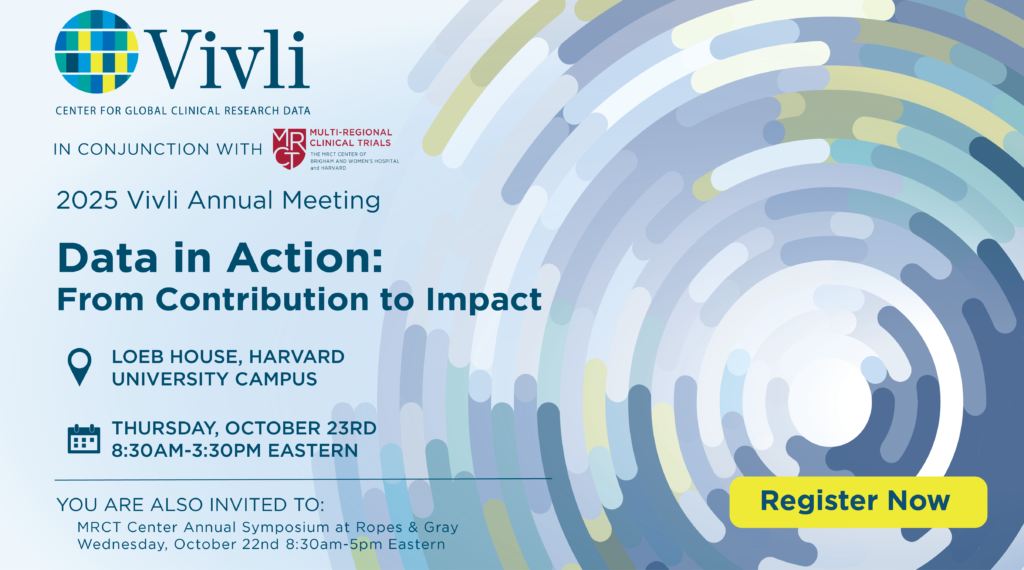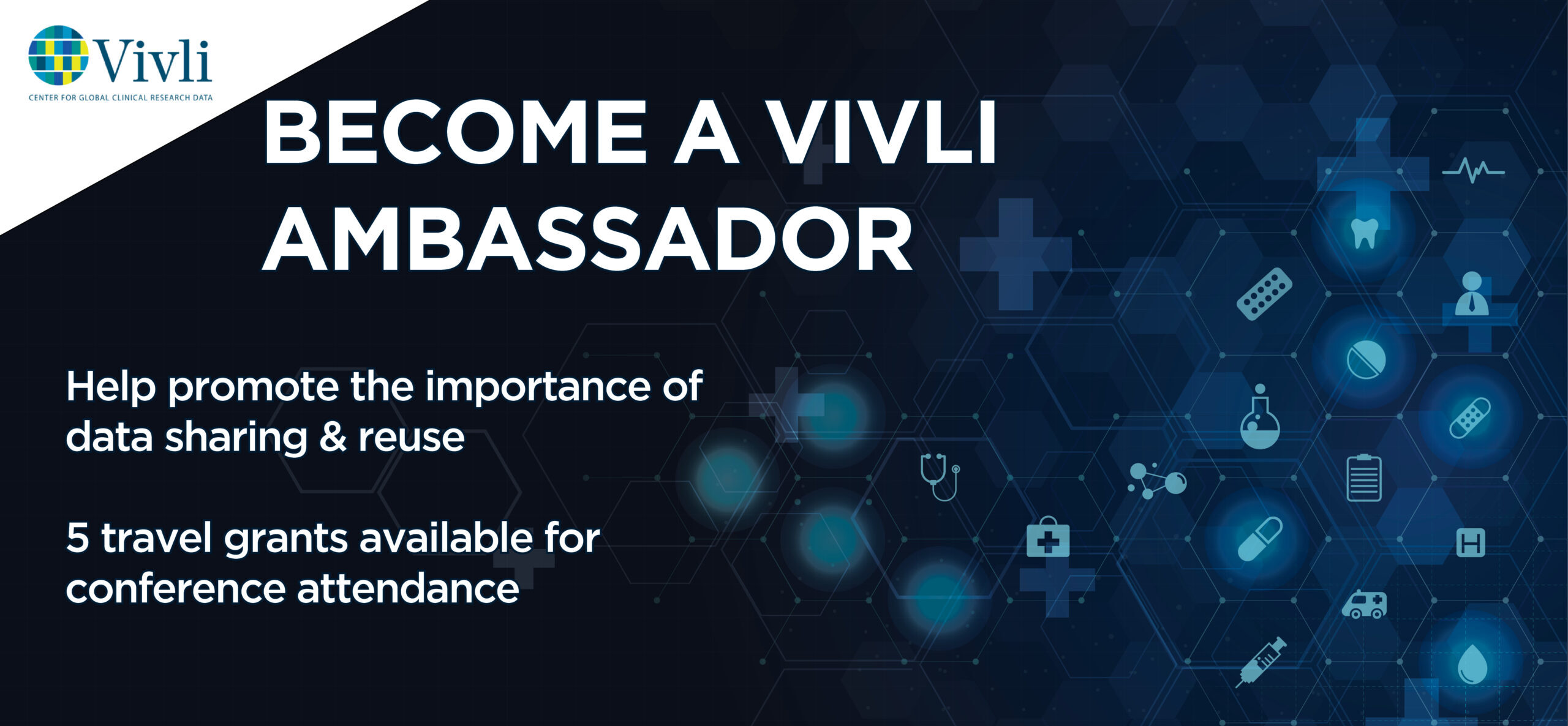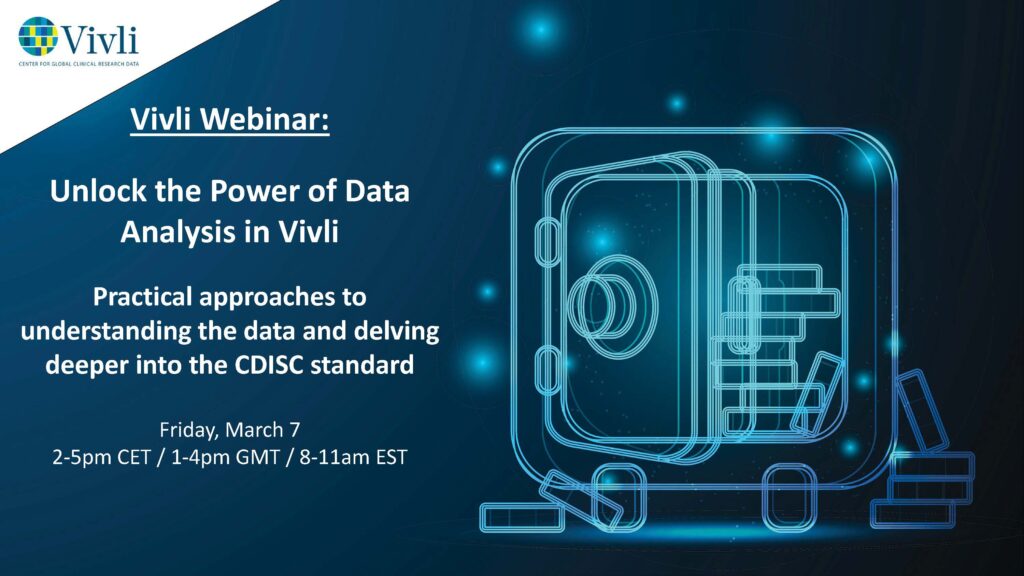 Please join us at Loeb House at Harvard University Campus in Cambridge, MA, on Thursday, October 23, for the 2025 Vivli Annual Meeting, co-hosted with the MRCT Center of Brigham and Women’s Hospital and Harvard.
Please join us at Loeb House at Harvard University Campus in Cambridge, MA, on Thursday, October 23, for the 2025 Vivli Annual Meeting, co-hosted with the MRCT Center of Brigham and Women’s Hospital and Harvard.
During this meeting, we will:
- Explore how researchers, data contributors, and funders are transforming clinical trial data into real-world health impact.
- Hear how data sharing platforms like Vivli are enabling responsible data sharing and fostering a cycle of data re-use.
- Learn about success stories of groundbreaking data challenges, success stories and how they are shaping new developments in various fields of medicine.
The MRCT Center’s Annual Symposium will be held on Wednesday, October 22, at Ropes & Gray.
This event is free, but registration is mandatory. Please register as soon as possible, as in-person space is limited. Virtual attendees will be able to view and ask questions of presenters. Please email support@vivli.org with any questions.





 Are you a researcher who has analyzed data on Vivli? Or has your research team already analyzed data in the Vivli platform but is looking for more efficient approaches?
Are you a researcher who has analyzed data on Vivli? Or has your research team already analyzed data in the Vivli platform but is looking for more efficient approaches?
